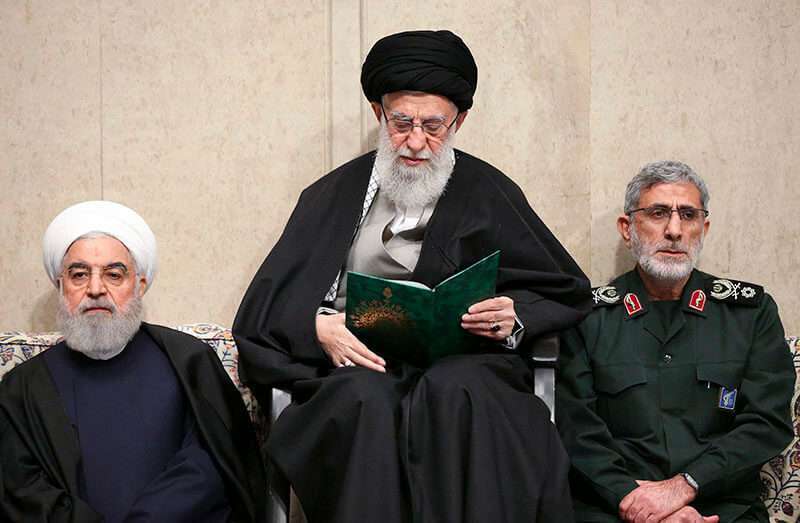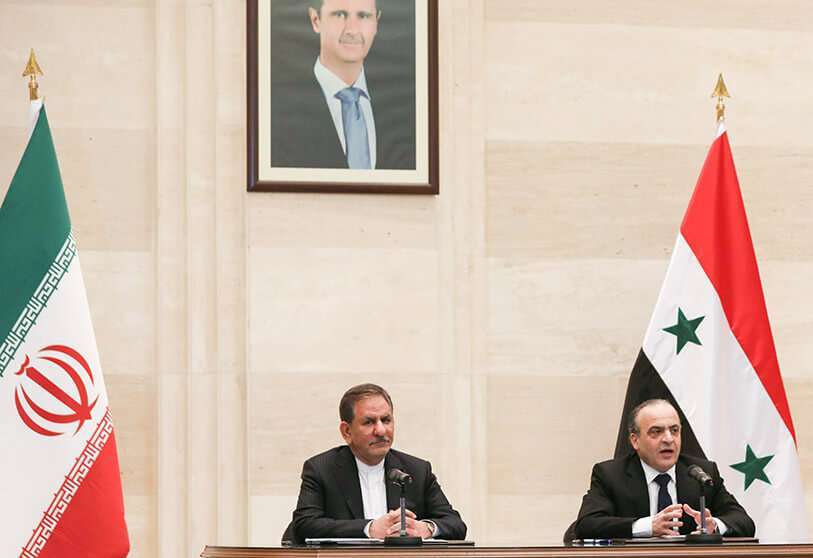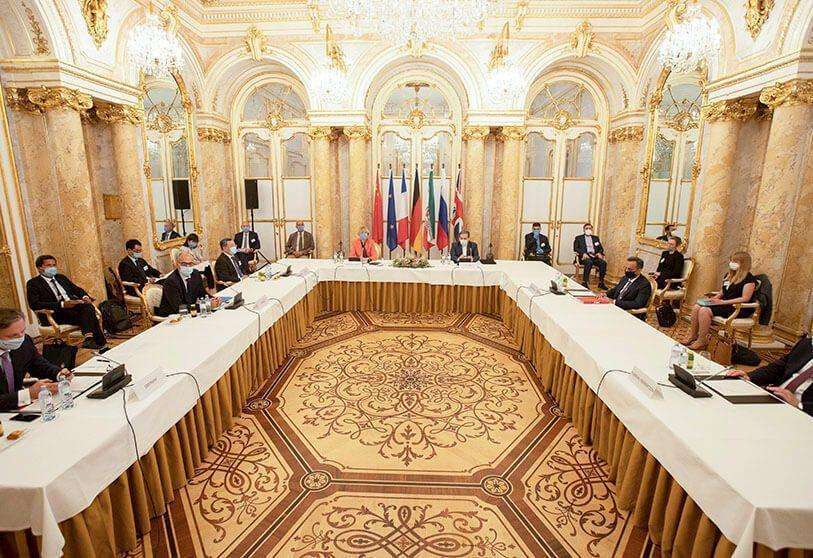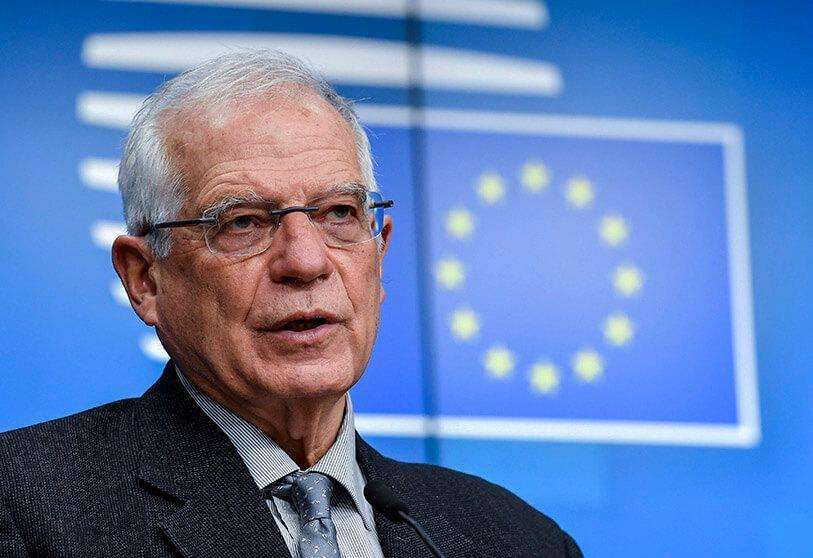Iranian Revolutionary Guard colonel's assassination raises tensions with Israel and the US

A senior member of the Iranian Revolutionary Guard, Colonel Hassan Sayyad Khodaei, has been shot dead outside his home in Tehran. The assassination was allegedly carried out by unidentified men who fired shots from a motorbike, according to Iranian state television IRIB.
The attack, which reportedly took place in broad daylight, was linked to Israeli intelligence services, according to accusations made by the Iranian Guard. The Iranian armed forces claim that this assassination is directly linked to Israel and assure that the country will suffer "terrible consequences".

In addition, another Israeli attack near Damascus, the Syrian capital, killed two members of the Guard in March, prompting Iran to retaliate by firing a barrage of missiles into northern Iraq.
This incident reportedly coincided with Tel Aviv's bombing of IRIB positions in Syria, which reportedly killed three people. For Iran, the assassination of Khodaei demonstrates a "global arrogance" on the part of Israel, and they claim that both Israel and the US are targeting Iranian nuclear scientists.
So far, there has been no immediate claim of responsibility for the attack. Meanwhile, reports piecing together the scant information on this latest assassination identify Khodaei as a 'defender of sanctuary', thus referring to Iranians who are reportedly involved through the Quds forces, the elite Guard overseeing foreign operations, in the fight against Daesh in both Iraq and Syria.
Likewise, this term, coined by Iran, refers to anyone working for the Islamic Republic in countries such as Syria and Iraq, countries that are home to Shi'a cult areas and where Iran would have a certain presence and influence through 'military advisors'.
???? Irán asegura que el asesinato de Jodayari está vinculado con Israel, que sufrirá “terribles consecuencias”. El incidente ha ocurrido un día después de que posiciones de la IRGC en Siria fuesen bombardeadas por Israel; en él murieron tres personas.pic.twitter.com/uWrfCPq5HI
— Descifrando la Guerra (@descifraguerra) May 22, 2022
There is little information on Khodaei due to his possible links to covert operations supporting Hezbollah in Libya, as well as other militias in Syria and Iraq. In this vein, Colonel Khodaei is one of the country's most influential people killed on Iranian soil following the assassination of nuclear physicist Mohsen Fakhrizadeh after he was killed in November 2020 near Tehran in an attack on his vehicle.
After Fakhrizadeh's death, he was presented as a deputy defence minister and head of the Defence Research and Innovation Organisation (Sepand), who was allegedly involved in contributing to the country's "anti-atomic defence".

A few hours after the crime, an Iranian prosecutor reportedly arrived at the scene of the crime to investigate what had happened and to demand that the police arrest the culprits. At almost the same time, Iranian media reported that the Revolutionary Guard security forces had "discovered and arrested" members of an Israeli intelligence network operating in the country, without specifying whether it was linked to Khodaei.
Negotiations aimed at restoring the nuclear agreement with Iran, after the United States decided to abandon it unilaterally in 2018 during the presidency of Donald Trump, remain at a standstill.
The reason for this stalemate, among others, is a new sine qua non condition that is now fundamental for Iran, namely that the United States cease to designate the Revolutionary Guard as a terrorist organisation, a designation decreed by the United States in 2019.

For Tehran, this designation is a red line for negotiations to get back on track, as they consider it to be part of Trump's policy of trying to impose "maximum pressure". The US, on the other hand, has responded that Iran must commit not to attack diplomats, government representatives or members of the US military stationed in the Middle East.
Neither side has been able to agree, and in the meantime Iran continues to press ahead with its nuclear programme. In early May, the Director General of the International Atomic Energy Agency (IAEA), Rafael Mariano Grossi, claimed that Iran had accumulated 42 kilograms of 60 per cent enriched uranium, bringing it ever closer to the tipping point from which there would be no return for Iran to become a nuclear power.
In this case, the US may be pressuring Israel to intervene in the state, as an Iran harbouring that amount of nuclear energy would represent "an unbearable threat" to its continued existence as a nation. In this case, neighbouring countries such as Saudi Arabia would oppose such enrichment by Iran, which would jeopardise the so-called Baghdad Dialogue that Iraq is offering to mediate between Iran and Saudi Arabia. If this does not happen, there may be a risk of a nuclear arms race between the two regional powers.

On the other hand, the European Union's High Representative for Foreign Policy, Josep Borrell, reiterated the importance of getting negotiations back on track to restore the nuclear agreement with Iran, and warned that time is a fundamental factor in these negotiations, as the longer it takes, the "more difficult" it will be to close them.
On his Twitter account, Borrell stated that he had spoken with Iran's foreign minister, Amir Abdollahian, to "raise urgent bilateral issues and discuss the next steps to restore the JCPOA", that is, the Joint Comprehensive Plan for the nuclear agreement, and reiterated the need to "get them underway" as soon as possible.
Americas Coordinator: José Antonio Sierra.









